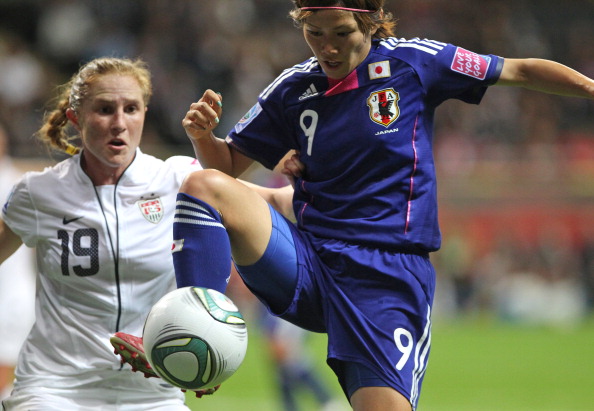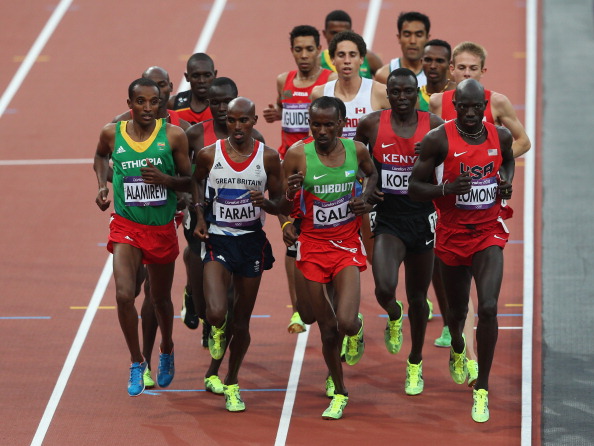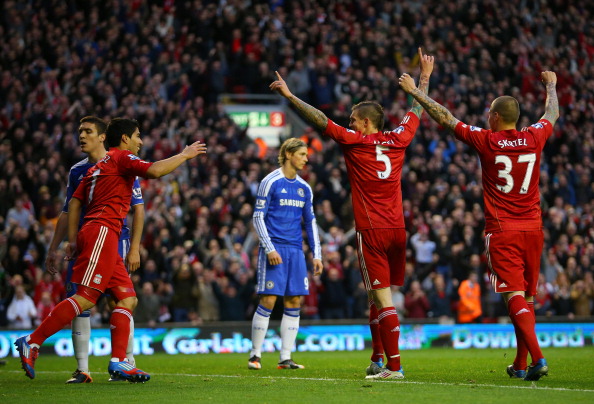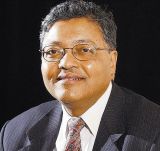The Olympics always puts football in the box, if only for a brief two-week period.
Indeed, the very nature of football’s participation in the Games, with teams composed of players who hope to aspire to be the best, but are not yet the best, give it the status of an interloper. And as if to emphasise this status, football starts even before the Opening Ceremony. In the wider world, it may be the greatest of all sports, but in the Olympics it is just one of 26, and by no means the most important – that distinction going to track and field.
However, what has made London 2012 quite remarkable is that is has not just put football in the box, but given it a good kicking. So much so that now various people in the highest reaches of the game, led by FIFA President Sepp Blatter and including David Bernstein, chairman of the Football Association, are keen to tell us that football could learn from the Olympics.
There are two issues here. One is the question of what football calls simulation but what most of us call cheating. We are talking of a player who dives in the hope he will get a free kick or a penalty, or falls down and pretends to be injured when he is not just to make sure an opponent gets a red or yellow card.
Now, in football a certain amount of gamesmanship, claiming a corner or a throw-in when you know the last touch on the ball was from you, is part of the game. However, simulation, or cheating, is something very different and it is a reflection on the way the game has been run that nothing has been done to curb it and punish those who have made it such an art form.

What makes it worse is the failure of those who run football to highlight how well the women’s game avoids such cheating. This made last year’s women’s World Cup (pictured above), held in Germany, such a refreshing contrast to the 2010 men’s competition. The authorities, by their continuous failure to stamp down on such cheating, has encouraged it to the extent that many now see it as having always been part of the game. Yet I am old enough, and I cannot be alone in this, to remember a time when such practices were unknown, even in the men’s game.
The Olympics has made the football authorities talk of doing something, but we have heard such talk before and not seen any action. I will only believe the game is serious when it calls it not simulation but cheating and really stamps down hard on those who cheat.
The other issue is more complicated and it is that football’s celebrity stars do not shine when you compare their behaviour to the Olympic heroes and heroines. The Olympics has provided us many examples of this and even Usain Bolt, undoubtedly the greatest star of these Olympics, has never put on the airs common to football players who can boast nothing like Bolt’s achievements.

I realise that, to an extent, we are comparing apples with pears. Football is a team sport with strong club-based culture where the strength of the team lies in the ability of the group to stick together. Track and field sports are largely individual activities. The different athletes may represent very different countries, but they often share information on their sport and, what is more, they train together.
A striking example of this is provided by Mo Farah (pictured above). Now, as Farah has often said, his first love was not track and field but football. As he told me when I interviewed him two years ago, he only discovered athletics when, at the age of 15, UK Athletics sent him, along with several other promising young athletes, to Orlando for a two-week training camp.
He had gone to Florida still hoping to emulate his hero Dennis Bergkamp, then the star of his beloved Arsenal. He returned convinced that he was not good enough for football but had a future on the track.
But, and this is crucial and does not happen in football, his athletics career took off when his agent Rick Simms told him to go and live with Kenyan athletes. Farah used to do his hill sessions on Saturdays in Richmond Park and often saw Kenyan athletes running around it. The Kenyans were the best. They had a spare room, Farah went to live with them and they changed his entire way of life. As Farah told me: “They would just eat, sleep, train and do nothing else. I’d be out with my mates, coming back at half-eleven or 12. The Kenyans were in bed by eight o’clock. I said to myself that if I am ever going to have any chance of being successful I have got to do what they do. Never having been an early riser, I started getting up at six o’clock and doing runs with them.”

Farah’s life has undergone many other changes, but what this illustrates is how top athletes share information and knowledge. They are not worried about that. Indeed, after his 5,000 metres race Farah acknowledged the help he had received from runners he trained with, help that was crucial to his win.
In football this would be impossible. I realise that football, being a team game, is very different to a 10,000 or 5,000 metres race. Yet what football has done in recent years is to have made a fetish of secrecy – so clubs have closed training sessions as do national teams before major championships. I’m not suggesting we go back to the training methods of the Fifties when, as Danny Blanchflower discovered, footballers were not even allowed a ball to play with during the week. The idea was that when they saw the ball on match day they would be hungry for it. It’s good the game has abandoned such idiocy, but modern training methods spread the myth that teams are discovering some hugely secret way of playing, when all they are doing is practising a drill which is not all that far removed from what other teams are doing.
This secrecy encourages a group mentality in football which puts the group above all. It means whatever an individual in the group does he is always right because it is as part of the group, as Liverpool’s abysmal handling of Luis Suárez (pictured above, on left in red) showed. Football at its best can be such a beautiful collective game that still allows an individual like a Lionel Messi to shine. But every so often this insistence on group psychology and the need to make sure the group stays intact breeds jealously and tolerates the sort of bad behaviour that would be foreign to most other sports, particularly Olympic sports.

It is no use saying that is just the way team sports are. Not all team sports are like that. Take cricket, for instance. There cricketers from different countries freely share new developments in the game, as spin bowlers Shane Warne (pictured above) and Saqlain Mushtaq have done. They are confident that while they may display their new technique to the opposition, the opposition players would be able to do nothing with it unless they have the ability to exploit the knowledge. Football managers and coaches, by contrast, behave as if their knowledge is so fragile that the moment it is broadcast outside the group it will crumble.
This, like simulation, was not always the case in football, but has grown in recent years as the game has been more controlled by specialist coaches. The result is that a game that should be the most natural of team games, and the most free flowing, has been made needlessly complicated. And its players have been encouraged to behave like a herd with a mentality that says whatever the herd does is always right.
The Olympics, on the other hand, while being outwardly the most nationalistic celebration of sport, places the individual at the centre of it, making contests both more open and refreshing.
If football could learn from that then London 2012 will indeed mark a major advance for the sport.
Mihir Bose is one of the world’s most astute observers on politics in sport, particularly football. He wrote formerly for The Sunday Times and the Daily Telegraph and was the BBC’s head sports editor. Follow him on Twitter here.

